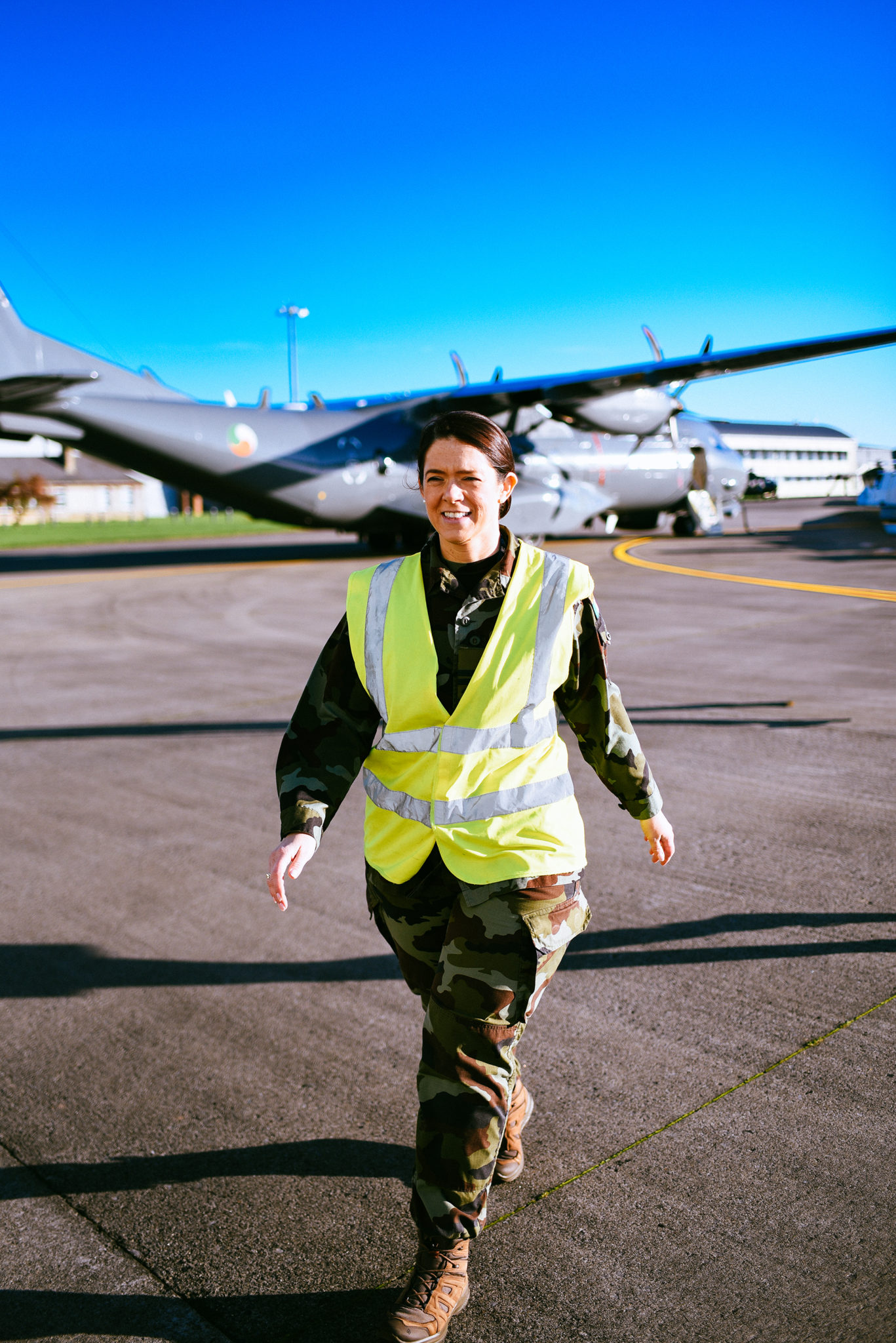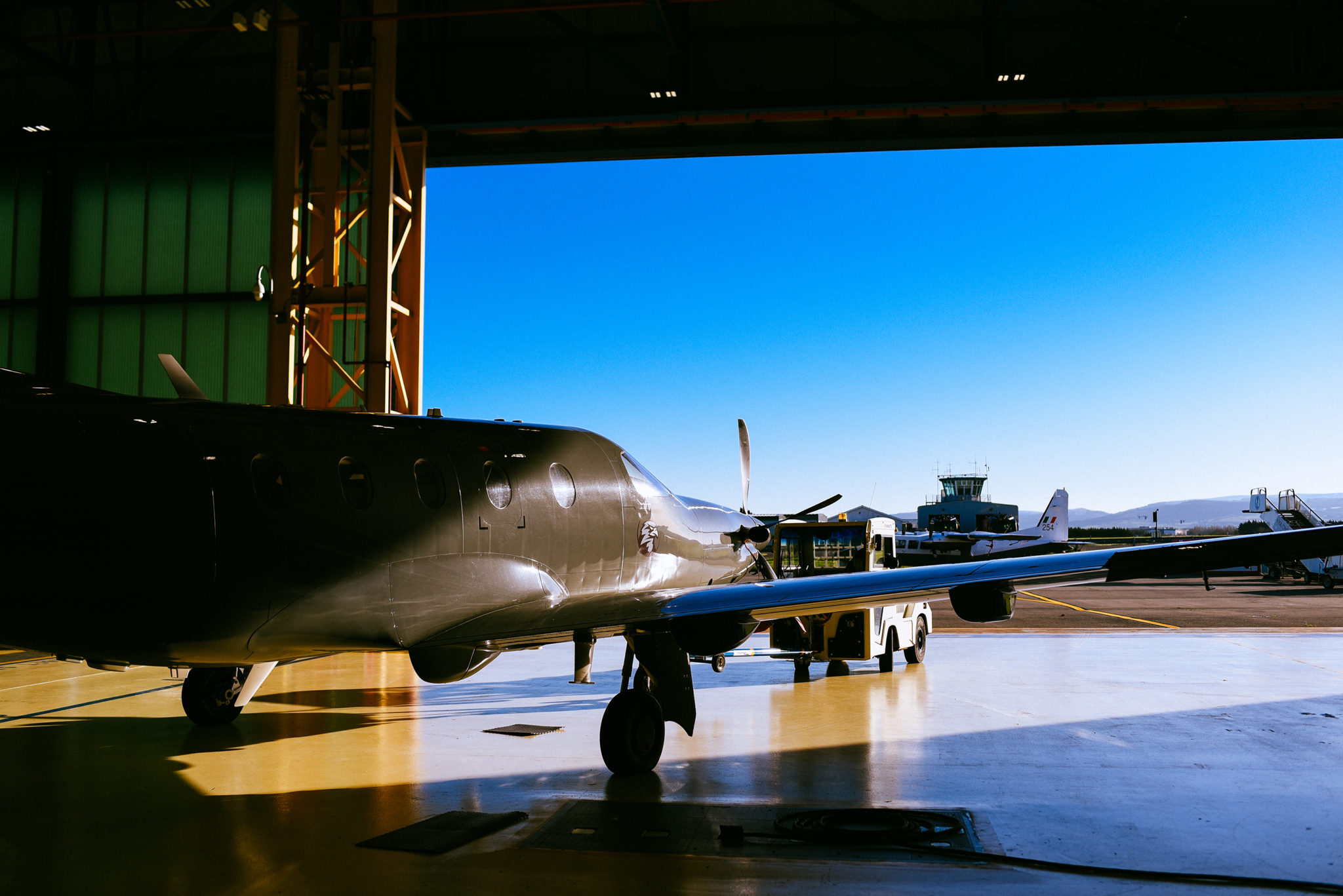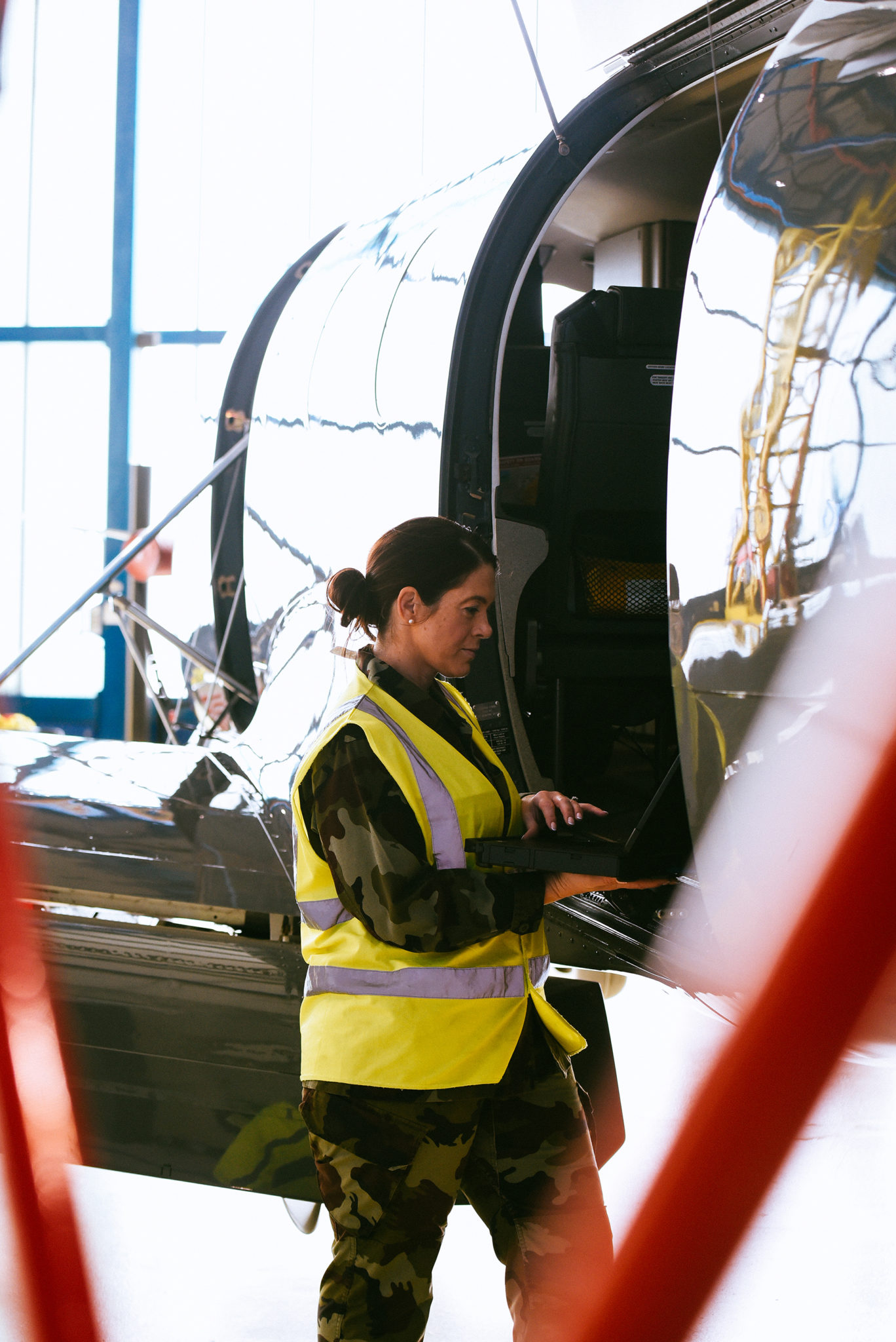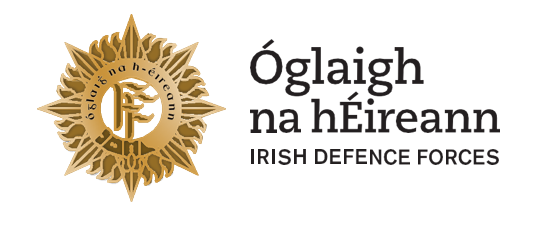- Lifestyle & Sports
- 06 Dec 24

Captain Eva Balfe tells us about her journey from a Computer Science degree at DCU, to a fascinating career in the Irish Air Corps’ Communications & Information Services Squadron.
The first time a military career even crossed Captain Eva Balfe’s mind, she tells me, was when she was in secondary school, and spotted a Defence Forces brochure on the career guidance shelf. She didn’t know it then, but over the next two decades, that chance observation would open up an entirely new world of possibilities and opportunities – taking her outside her comfort zone, and onto a career path that she remains as passionate about today as ever.
With her interest piqued by the brochure, she applied for a Cadetship the year after leaving school. On that first attempt she wasn’t successful, but after putting in some time in the Reserve Defence Forces, and completing a degree in Computer Science at Dublin City University (DCU), she decided to try again – and went on join the Air Corps, the air component of the Defence Forces, as a Cadet in 2006.
From there, she was commissioned into the Air Corps’ Communications & Information Services (CIS) Squadron, based at Casement Aerodrome in Baldonnel, Co. Dublin.

Captain Eva Balfe at Casement Aerodrome. Copyright Miguel Ruiz.
The CIS Squadron deals with all matters related to the communications, navigation and information technology equipment and systems required by the Air Corps. That might include: installing and maintaining a vast array of technical equipment; providing ground and air-based communications for the Air Corps; and ensuring the proper functioning of the Communication & Information Services Network, among other responsibilities.
“I’ve moved around with CIS, I’ve gone overseas, and I’ve done career courses, but predominantly, my career has been focused here, in various different areas,” Eva reflects. “When I started, I had my degree in Computer Science, so that fed into going into the area of IT. I spent ten years working in IT, and I really enjoyed that – there was plenty of variety in that role. But in later years, I’ve branched off into other areas, which were very new to me, even with a technical background.”
Alongside this journey in the Defence Forces, Eva has also raised two children – Marcus, aged seven, and Katie, aged five – with her husband John, who she met while studying at DCU. Even with young children, she’s been able to continue exploring exciting new directions in her career.
“In the last year, I’ve moved into the area of Navigational Aids (Navaids),” she resumes. “Obviously, being an airfield, we have Navigational Aids that help pilots take off and land into the aerodrome. We have a workshop of personnel that maintain and support those Navaids, communications equipment, and surveillance equipment for air traffic control in Baldonnel. Working in that area has been really enjoyable, and different.”

Eva has also previously been deployed overseas – where she found her technical knowledge was constantly being expanded and tested.
“You have to apply your technical expertise to things that wouldn’t necessarily be your usual area,” she explains. “You’re in an environment over there where you can’t have an SME (Subject Matter Expert) on everything, so people end up turning their hands to things that wouldn’t ordinarily be their speciality at home.”
Away from your home comforts, overseas deployment can be a challenging, even overwhelming, experience at first, Eva tells me.
“I went to UNIFIL in Lebanon in 2013," she recalls. "The environment over there then was very different than it is currently. But the role of a CIS Officer would be quite similar – you’re predominantly based in the camp, and your responsibility is looking after the network and comms infrastructure to support the Irish mission over there.
“I found it quite full-on for the first few weeks, and really different to anything I’d experienced before,” she continues. “But once the first few weeks of that initial shock wore off, I really enjoyed it. I made friends who I’m still friends with to this day – people who I’d never worked with before or since in a home environment."
As Eva points out, in that kind of pressurised environment, “you really learn your trade”.
“It’s an environment where it’s operational,” she says. “It’s not like, ‘Oh, we’ll try that tomorrow if it doesn’t work now’. Things need to work. So it’s a steep learning curve, but in a good way. I came back from six months in Lebanon with a skillset and knowledge that would’ve taken me two or three years to build up at home.
“From that point of view it was invaluable,” she adds. “It’s an opportunity to do something completely different, and push yourself outside of your comfort zone a little bit.”

Captain Eva Balfe at Casement Aerodrome. Copyright Miguel Ruiz.
More recently, Eva was also involved in ensuring the equipment on the Air Corps’ brand new, state-of-the-art Airbus C295 Maritime Patrol Aircraft was fit for purpose.
“A big part of my role was bringing the mission equipment on the back of the aircraft to operational capability – to make sure it works, and does what it’s supposed to do in our home environment here,” she elaborates. “The responsibility is on the likes of myself and my personnel here to get that equipment up-and-running, and to support it.
“And now it’s great to see that the information that we’re helping to gather on those maritime patrol flights is of benefit to our colleagues in the Naval Service, for example," she continues. "When you work in the area of comms or tech, you’re not the crew that are flying the aircraft, and you’re not the people on the ground – so sometimes it’s harder to see the fruits of your labour. But it’s nice to see those kinds of things working as a result of your efforts. There’s a real sense of achievement there.”
In addition to job satisfaction, the sense of camaraderie in the organisation is especially important to Eva. She’s also been encouraged to see the percentage of women in the Permanent Defence Forces continuing to rise over the years – though she says that, in her job, her “gender hasn’t been an issue”.
“I’ve genuinely had a very positive experience in the Defence Forces,” she reflects. “The Air Corps is a great place to work, and I really enjoy the job – which is why I’m still here all these years later. If you didn’t enjoy it, you wouldn’t stay. But underneath all that, what really keeps me here is the esprit de corps, and the friendships you develop through working with these people.
“The fond memories I look back on are probably the times when I was in training or overseas, and they’re all centred around that camaraderie that exists within the organisation,” she adds. “So that’s what keeps me here – the people.”
For further information on the various career options offered by the Irish Defence Forces, visit www.military.ie











